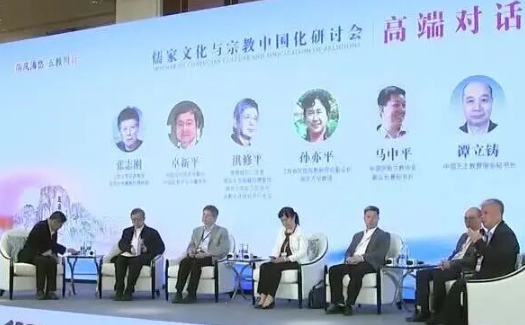On September 27, the "Seminar on Confucian Culture and Sinicization of Religions" was held in Tai'an, Shandong Province.
According to the Shandong Provincial Ethnic and Religious Affairs Commission, the seminar, centered on the theme "Confucian Culture and Sinicization of Religions," aimed to summarize the historical experience of integrating China's traditional culture, with Confucianism as its core, into religion. Through keynote speeches, dialogues, and focused discussions, participants explored the historical development of religious sinicization and examined key challenges and solutions for advancing this process among various faiths.
The conference emphasized that Shandong, as the birthplace of Chinese civilization and Confucian culture, holds significance in hosting this event. For over two millennia, Confucianism has remained central to Chinese cultural tradition. During their localization, foreign religions such as Buddhism and Islam have continually absorbed Confucian thought, ethics, and rituals, offering valuable insights for the sinicization of religion. In practice, promoting religious sinicization should draw on the strengths of Confucian culture, encouraging religious thought, ethics, and rituals to reflect Chinese characteristics, values, and style. Theoretically, building a system of religious thought with Chinese characteristics should be rooted in the historical experience and cultural spirit of religious sinicization. The Confucian ideals of "harmony is most precious" and "harmony among all nations" have also contributed Chinese wisdom to the peaceful coexistence of diverse religions and civilizations.
More than 180 experts, scholars, and religious representatives from over 20 universities, research institutions, and religious organizations, including the Chinese Academy of Social Sciences, Peking University, Renmin University of China, Nanjing University, Shandong University, and Nanjing University of Science and Technology, attended the seminar.












